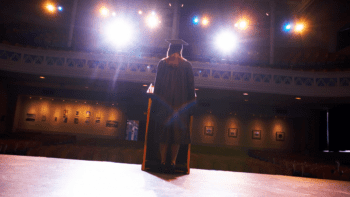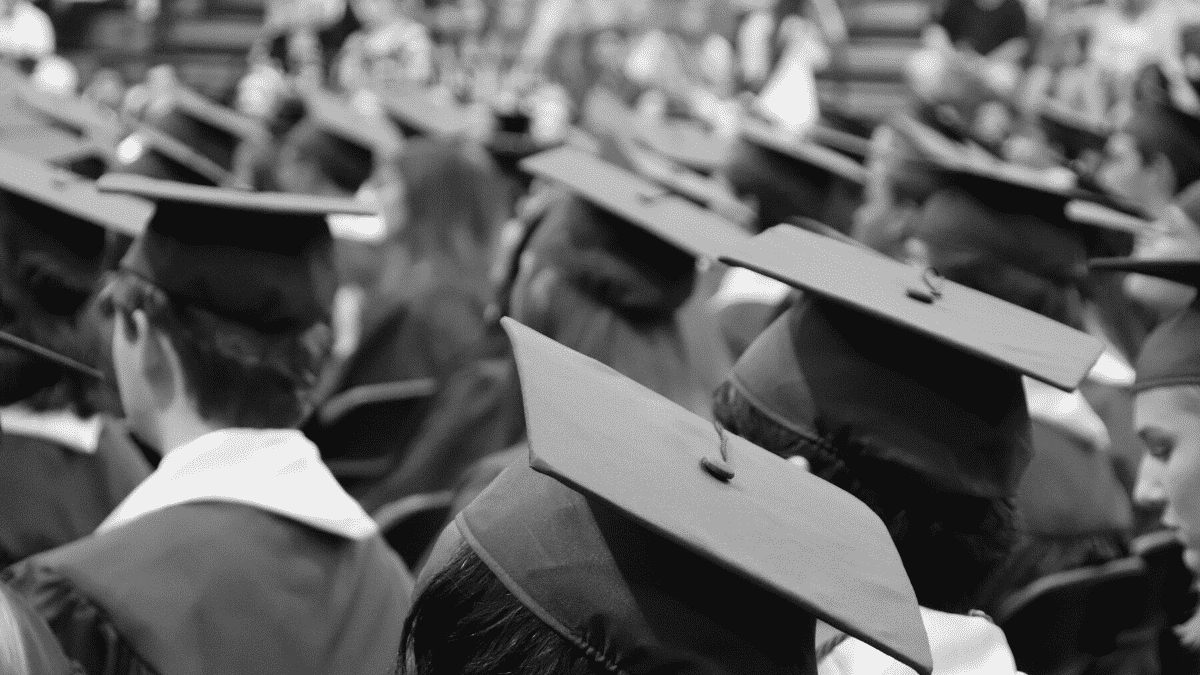Another Graduation Marred By Plagiarism

This is a high school graduation season unlike any other.
Not only are students completing their studies online and holding graduation ceremonies in a time with no mass gatherings but they are exiting school and entering a very alien world.
However, one thing seems to remain consistent: Some administrators wind up getting caught plagiarizing their commencement addresses.
That is exactly what happened in Caldwell County, Kentucky. There, district superintendent Nate Huggins published a letter to graduating seniors in the local Princeton Times Leader.
Unfortunately, astute readers were able to search passages of the letter and noticed that the entire work was lifted nearly verbatim from Superintendent Dr. Ann Levett of Savannah-Chatham County Public Schools in Georgia.
Huggins has both admitted to the plagiarism and apologized for it, both to the students and to Levett. Levett, for her part, accepted the apology saying, “I certainly accept your apology. There is no need for a call. Please offer my best to your senior class. I trust all will go well with your graduation activities.”
However, Huggins seemed to minimize what he had done. He said, “What I did wrong is I didn’t include her name in the article.” He went on to say that he should have just started the article with a paragraph giving credit and then added his own comments at the end.
Referring to the column as a “mistake”, he said he was owning up to it. However, it appears that there will be no repercussions for it other than the article now being removed.
Still, Huggins can take solace in the fact that he’s in good company. He’s far from the first school official to be caught plagiarizing and it’s unlikely that he will be the last.
Plagiarizing School Officials: A Bizarre and Ongoing Problem

Last year, a student in West Virginia edited a video that showed her principal, Ken DeMoss, plagiarized significant portions of his commencement address from a 2013 speech given by Ashton Kutcher at the Kid’s Choice Awards.
DeMoss said it was “never my intent to take credit for what I said or give never my intent to take credit for what I said or give a specific credit because of how I prefaced my speech,” but promised that future such speeches would be more clearly cited.
As of this writing, DeMoss is still the principal of the school though he was suspended for five days without pay.
In 2017 high school principal Glenn Lungarini of Pomperaug High School in Connecticut plagiarized portions of his graduation speech from a similar one given by U.S. Admiral William H. McRaven at the University of Texas in 2014.
He served an 8-day unpaid suspension. He is no longer principal of the school but moved on to a new position as the executive director of the Connecticut Association of Schools.
In 2015, Mark Stenner, who was then the principal of West Boca Raton High School in Florida, plagiarized much of his graduation speech from a 2012 one given by David McCullough Jr. This one was especially bad because, just a year prior, Stenner plagiarized portions of his 2014 graduation speech from a 2000 one by a University of Texas professor.
For his 2014 transgression, he was transferred to the charter school office, where he retired in June 2018. However, shortly after that retirement, the plagiarism in his 2015 speech was discovered, prompting officials to require him to pay a $750 fine and attend a creative writing class if he wanted to keep his educator’s license valid. He was also given two years probation.
In response to the 2015 allegations, Stenner said, “I did so much chopping it up that I didn’t think it was plagiarism. I did not use the entire speech, I took large portions and I should have known better.”
These are just three stories among many involving school officials plagiarizing around graduation time. However, all of these stories have one thing in common: they undermine the tenets of academic integrity that schools are trying to instill in their students.
After all, why should students be worried about plagiarism when it’s clear the higher ups in their school do not.
Why Officials Plagiarize and Why it Matters
To be clear, this problem is very rare. There are an estimated 24,000 public secondary schools in the United States and, every year, only a handful appear to have an issue with plagiarism. The problem of plagiarizing principals is an outlier, not the norm.
However, rarity is part of why it is so serious. When it does happen it inevitably makes the news, with DeMoss’ case even making national news. It represents some of the highest visibility for high school graduation every year.
But the problem isn’t that a handful of principals get accused of plagiarizing their graduation speeches, it’s that school districts seem to ignore it far too often. Those caught either face very little punishment or the matter is just completely swept under the rug.
When schools try to impress upon their students about the importance of following the rules of academic integrity and the severity of plagiarism, those efforts are undermined when school officials get caught plagiarizing and doubly so when there seem to be no real consequences. The damages increase further when that administrator either calls the plagiarism a “mistake” or proposes a simple fix that they somehow forgot.
And the damage isn’t limited to the school district at hand. These stories make regional and even national news. Students everywhere watch these cases and have their own views on academic integrity eroded.
Still, it’s easy to sympathize with these officials. After all, the skills needed to be an effective school official and the skills needed to write/deliver a good speech do not overlap much. Administrators are often out of their comfort zone when giving a speech like this and it’s a very public place to fail.
It’s also true that these officials are difficult to replace. They are often hired after lengthy processes that require months of vetting and interviewing. It’s often easier to keep such plagiarists than to get rid of them or reassign them.
However, the fact remains. This kind of plagiarism is very serious, very damaging and a type of plagiarism that nearly all administrators manage to avoid. Neither common nor minor, it must be taken seriously.
Otherwise, what hope is there for students to take plagiarism seriously the next semester?
Bottom Line
To be clear, I’m not calling for every principal accused of plagiarism to be fired and blacklisted. Instead, I’m saying that they need to be thoroughly investigated, including past works, and that the action taken needs to be swift and decisive.
It’s not just about balancing the scales, but about sending the right message to students.
However, for schools and school districts, the emphasis should really be on prevention. If student papers are run through a plagiarism detection service, why aren’t school officials’? Why is there a double standard where students are subjected to scrutiny that their educators are not?
While this might not have caught every single case of plagiarism, it would have definitely caught some. If they had, no headlines would be made, no difficult decisions forced and no students would need to question how serious academic integrity is actually taken.
Unfortunately, this doesn’t seem likely on a massive scale. As such, schools should brace for these kinds of stories every year. With the number of schools in the country, a few bad actors are pretty much inevitable.
However, that doesn’t make them any less damaging.
Want to Reuse or Republish this Content?
If you want to feature this article in your site, classroom or elsewhere, just let us know! We usually grant permission within 24 hours.
